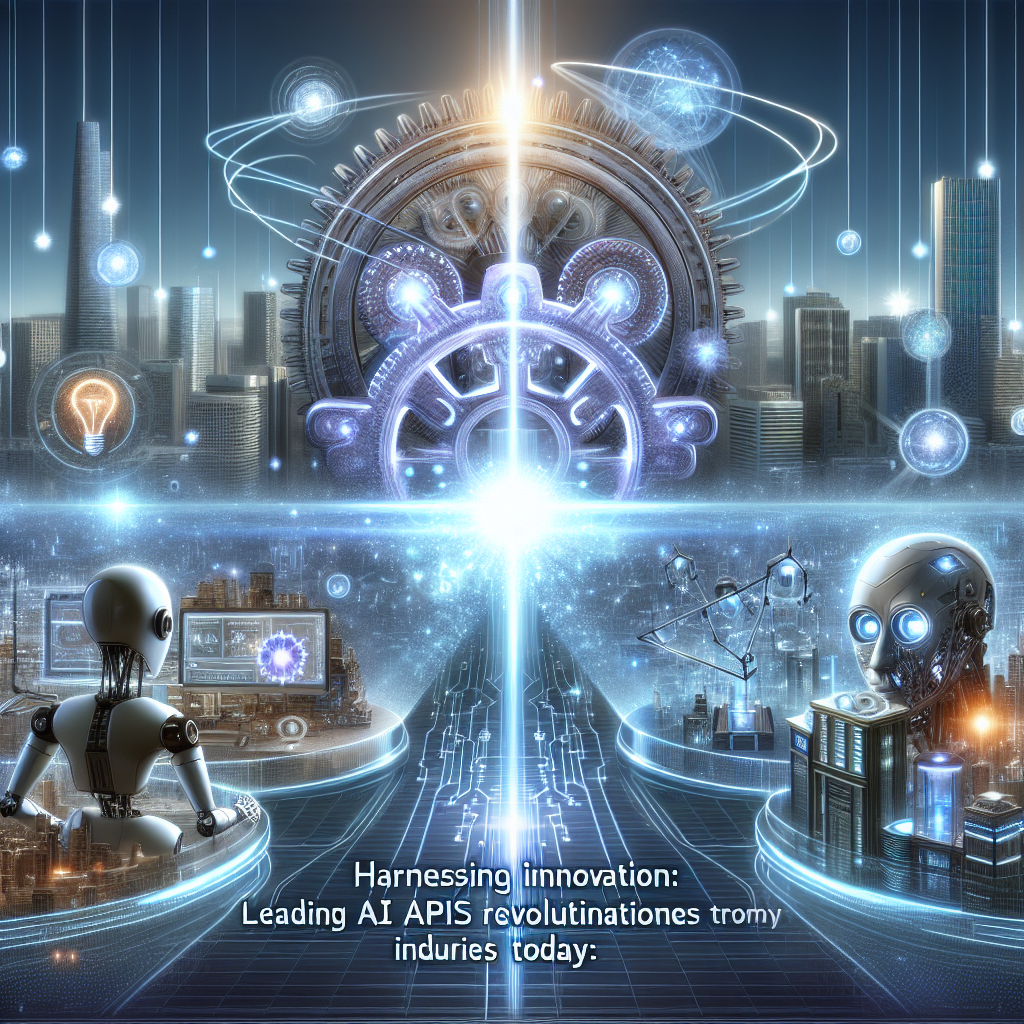In recent years, artificial intelligence (AI) has moved beyond theoretical discussions into actionable applications that significantly transform various industries. Serving as the backbone for intelligent systems, AI APIs (Application Programming Interfaces) are vital for developers, enabling them to incorporate advanced machine-learning features into their projects without the exhaustive task of creating the foundational technology from scratch. In this article, we highlight some of the leading AI APIs that are driving industry innovation and unlocking new possibilities.
1. OpenAI’s GPT-4: Transforming Natural Language Processing
OpenAI’s GPT-4 is a leader in Natural Language Processing (NLP). Its ability to comprehend context and produce human-like text makes it ideal for applications such as customer service chatbots, content generation tools, and coding assistants. Companies like Slack and Microsoft utilize this API to enhance user experience and simplify workflows. Additionally, its capabilities in sentiment analysis and language translation broaden its usage, making it indispensable for global communication and marketing initiatives.
2. Google Cloud AI: Driving Image and Video Analysis
Google Cloud AI offers powerful APIs for image and video analysis, impacting diverse sectors like healthcare and retail. The Vision API can detect objects, recognize faces, and analyze various attributes within images, while the Video Intelligence API labels content, identifies explicit materials, and even transcribes spoken words. In healthcare, for example, these tools assist in evaluating medical images for anomalies, resulting in faster diagnostics and enhanced patient care.
3. IBM Watson: Custom Solutions for Enterprises
IBM Watson has established itself in numerous sectors, especially in healthcare, finance, and retail, by offering customizable AI solutions. With APIs facilitating natural language processing, visual recognition, and machine learning, businesses can adapt Watson to their unique requirements. For instance, healthcare providers employ Watson to analyze patient data and recommend treatment options, banking institutions use it for fraud detection, and retailers leverage its analytics to enrich customer experiences.
4. Microsoft Azure Cognitive Services: A Comprehensive Suite
Microsoft’s Azure Cognitive Services comprises a range of APIs that enable developers to integrate diverse AI functionalities, from language and speech processing to image recognition. This flexibility allows organizations in finance, marketing, and logistics to quickly implement AI-driven insights. For example, the Text Analytics API can interpret customer feedback to assess sentiment and develop tailored marketing strategies.
5. Twilio AI: Enhancing Communication
Twilio’s AI capabilities are centered on enhancing communication through programmable messaging, voice, and video APIs. By infusing AI into these channels, it enables real-time customer engagement and support. Features like sentiment analysis and context-aware chatbots ensure businesses can customize responses and interact with customers more effectively. This is especially beneficial in sectors such as e-commerce and travel, where Twilio’s solutions improve customer interactions and streamline operations.
6. NVIDIA RAPIDS: Accelerating Data Science Workflows
NVIDIA RAPIDS is more than just an AI API; it is a suite of open-source software libraries designed to speed up data science workflows. It allows users to tap into GPU power to enhance data processing, machine learning, and deep learning tasks. Industries like finance and energy use RAPIDS for real-time data analytics and predictive modeling, enabling quicker and more informed decision-making, essential for maintaining a competitive edge.
7. Zoho: AI Solutions for Small Businesses
Zoho provides a variety of AI APIs tailored for small and medium-sized enterprises (SMEs). Its Zia AI can analyze business data, provide insights, automate routine tasks, and improve customer relationship management. This democratization of AI technology means that businesses of all sizes can leverage analytical power to optimize their operations and enhance customer interactions.
Conclusion
The transformative capabilities of AI APIs are clear across numerous industries. By unlocking potential through the seamless integration of machine learning and cognitive functionalities, they are leading the way for smarter, more responsive systems. As these technologies progress, the opportunities are limitless, promising greater efficiency, improved customer experiences, and innovative solutions to complex challenges. Adopting these AI advancements is increasingly becoming essential for organizations striving to excel in a digital-first world.

